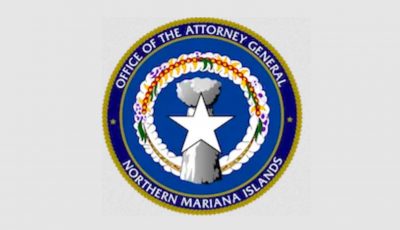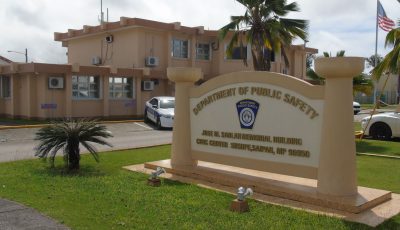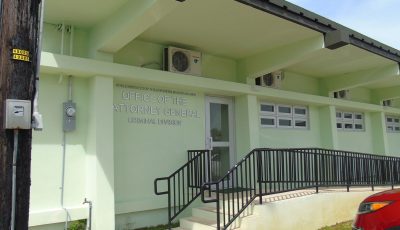High court denies Ogumoro’s petitions for writ relief
On Dec. 4, 2015, the NMI Supreme Court issued full opinions in In re Ogumoro, 2015 MP 9 and 2015 MP 10, consistent with previous orders denying two petitions for writ relief filed by Ambrosio T. Ogumoro. A writ allows the high court to order that the trial court either take or refrain from taking a specific action.
Ogumoro’s first petition requested a writ of mandamus to order the recusal of the trial court judge; or, alternatively, a writ of prohibition to prevent the trial judge from presiding over the case. The high court addressed three arguments advanced by Ogumoro. First, Ogumoro asserted the trial judge erred by not recusing from the case because another trial judge, previously assigned to the case, recused after hearing incriminating evidence about Ogumoro. Second, Ogumoro claimed the trial judge prejudged the case because the judge found probable cause to support the arrest warrant. Third, Ogumoro purported that the trial judge inappropriately engaged in ex parte contacts with the Office of the Attorney General and the Office of the Public Auditor at the hearing on the ex parte appointment of a special prosecutor and at a subsequent evidentiary hearing.
The Supreme Court determined Ogumoro failed to demonstrate the trial court’s decision was clearly erroneous because: (1) one trial court’s decision does not bind another; (2) a reasonable person would not question the trial judge’s impartiality because a finding of probable cause is not a determination of guilt; and (3) the trial judge did not engage in ex parte contacts because the OAG and the OPA were the only interested parties to the special prosecutor and evidentiary proceedings. As such, the high court denied the first petition.
Ogumoro’s second petition sought a writ to prohibit the trial court from appointing a special prosecutor. The high court reviewed whether the trial court violated the court’s order in In re San Nicolas, 2013 MP 8, which mandated the trial court hold a hearing on whether the OAG should be disqualified. The high court held there was a rational and substantial argument that a hearing was unnecessary because the OAG evaluated the appropriateness of the disqualification and agreed to the continued appointment of the special prosecutor. Because the OAG made the determination required in In re San Nicolas, the trial court did not clearly err by canceling the hearing. Accordingly, the Supreme Court denied the second petition.
The high court’s opinions are available at http://www.cnmilaw.org/supreme15.html. (NMI Judiciary)



























